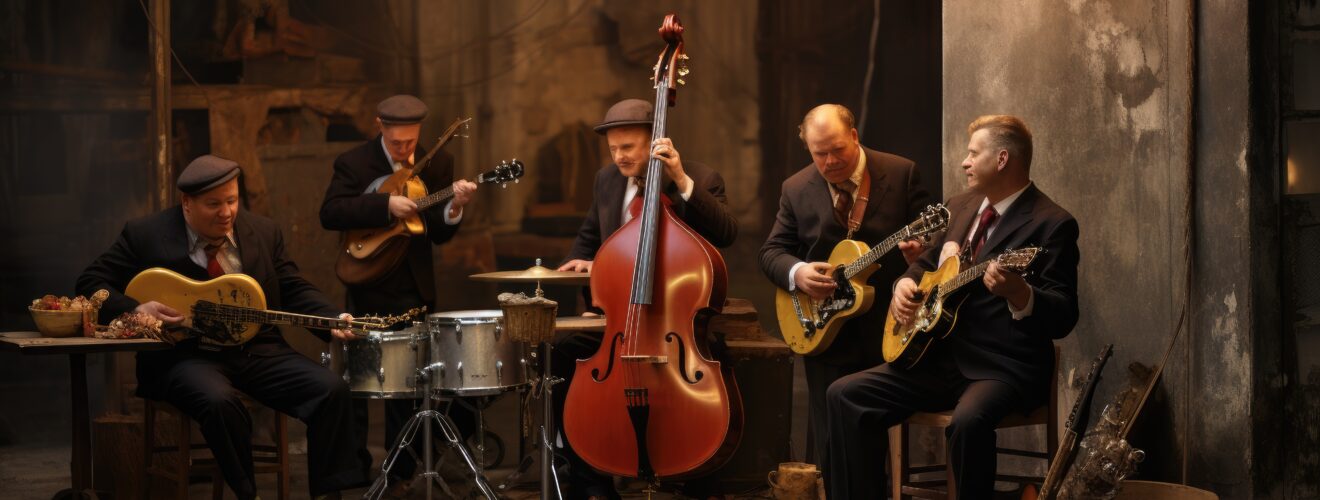American Folk Music – Blues and Jazz
American folk music, including blues and jazz, has played a significant role in shaping the musical landscape of the United States. Here are key points about American folk music, with a focus on blues and jazz:
American Folk Music
Roots in Traditional Music
American folk music encompasses a broad range of traditional music that has evolved over time, drawing influences from various cultural and regional sources.
Blues and Jazz Influence
Blues and jazz are integral components of American folk music, reflecting the African American experience and contributing to the country’s musical heritage.
Blues Music
Origins
The blues originated in the African American communities of the Southern United States, particularly in the Mississippi Delta, in the late 19th and early 20th centuries.
12-Bar Blues
A common musical structure in blues, characterized by a 12-bar chord progression that underpins many blues songs.
Themes
Blues lyrics often address themes of hardship, love, loss, and resilience, reflecting the experiences of African Americans in the Jim Crow era.
Prominent Figures
Influential blues artists include Robert Johnson, B.B. King, Muddy Waters, and Howlin’ Wolf, among others.
Evolution
Blues has evolved into various subgenres, including Delta blues, Chicago blues, and electric blues, influencing rock and other genres.
Jazz Music
Origins
Jazz emerged in the late 19th and early 20th centuries, blending African and European musical traditions in New Orleans.
Improvisation
Jazz is characterized by improvisation, where musicians create and interpret music in the moment, often within a structured framework.
Swing Era
The swing era of the 1930s and 1940s saw the rise of big bands, swing dance, and influential musicians such as Duke Ellington, Benny Goodman, and Count Basie.
Bebop and Beyond
The post-swing era introduced bebop, a complex and innovative style with musicians like Charlie Parker and Dizzy Gillespie. Jazz continued to evolve into various subgenres, including cool jazz, hard bop, and free jazz.
Crossover Influence
Jazz has influenced various genres, including rock, hip-hop, and electronic music, contributing to its status as a uniquely American art form.
Cultural Impact
Social and Political Expression
Blues and jazz have been powerful mediums for expressing social and political issues, reflecting the struggles and triumphs of marginalized communities.
Civil Rights Movement
Both genres played a significant role in the Civil Rights Movement, providing a soundtrack for protest and cultural expression.
Global Influence
Blues and jazz have gained international acclaim, influencing musicians and audiences worldwide and contributing to the global appreciation of American music.
American folk music, especially blues and jazz, has deep roots in the nation’s history and continues to be celebrated for its cultural richness, artistic innovation, and profound influence on the global music landscape.









